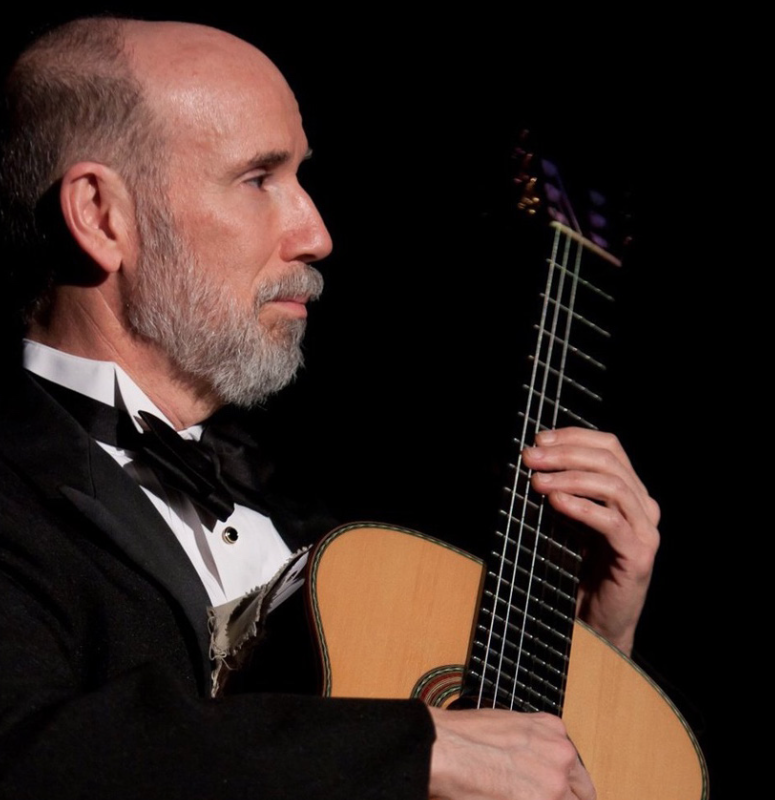Composers of contemporary classical music gravitate toward musicians who are receptive to new repertory. Often, the musicians most receptive to newly composed works are those who play instruments that don’t themselves have big catalogues of canonic pieces dating back hundreds of years. For example, one of the most beautifully intimate and expansive sounds that Western European culture generated is that of the string quartet. But living composers looking to shop around their recent compositions for string quartet have to ask for wiggle room amongst a long list of formidable masterworks that string quartet ensembles have rightfully adopted as standard repertory.
Haydn, Mozart, and Beethoven all extensively explored the string quartet’s expressive possibilities. The Romantics, Nationalists, and Impressionists that followed in the 19th century found new sonic riches there. In the 20th century, the Hungarian composer Bela Bartok and the Russian composer Dimitri Shostakovich each built their own catalogues of demanding, ground-breaking works that expanded the boundaries of performance techniques and pushed for a reconsideration of what the musical conversation between the players themselves, and between the music and listener, could be like.

Robert Phillips, photo by Andy Glogower
Other instruments do not have the same depth of historical repertory, either because they didn’t attract the attention of big name composers or because those instruments are simply newer. The saxophone was invented in 1840. Percussion instruments, generally speaking, have been in existence prehistorically, but when considering the percussion family as a potentially virtuosic participant in the classical tradition, it’s a 20th century phenomenon. Similarly, precursors to the classical guitar emerged roughly 5000 years ago, but the modern classical guitar didn’t emerge into broad popularity until the 19th century, during which masterworks for the instrument emerged, but at nowhere near the rate or scope of traditional ensembles like the string quartet.
That is good news for composers. Musicians of these instruments are hungry for serious repertory, and some of them go out of their way to midwife new repertory into being by actively commissioning living composers to write for them. They get the added thrill of having input into the creative process and being able to provide feedback.
Robert Phillips is one such musician. A guitarist based in Lakeland, he is an instructor at the Harrison School for the Arts and on the faculty of Southeastern University. He grew up on Long Island and earned his Bachelor’s degree not far from home, at Hofstra University. He got his first real taste of contemporary music studying with David Starobin while earning his Master’s degree at Brooklyn College. Starobin owns Bridge Records, a label that specializes in contemporary classical music, and Starobin himself has been the catalyst for a multitude of commissions from a who’s who list of late 20th century composers from George Crumb to Elliott Carter to Gunther Schuller.
According to Phillips, “If you’re not playing new music, you’re just allowing the art to die out. A Beethoven string quartet has passed the test of time, which new music can’t. When Beethoven wrote a string quartet, it was a new piece at that time. If you don’t take a chance on new music, we won’t have new masterpieces. And it’s gotten easier as a performer to program new music, because new music has gotten more audience-friendly compared to twenty-five or thirty years ago. We’re now in a period where composers are really re-engaging their audience and really saying something that listeners can identify with and understand.”
After graduating with his Master’s degree in guitar performance, Phillips worked the freelancer’s grind in New York for many years, giving guitar lessons and performing. But by the late 1980s and early 1990s, Long Island’s economy suffered several blows, including Grumman Aerospace corporation laying off 9000 workers at once, adding them to a pool of unemployed professionals totalling 90,000. As so often happens, music becomes an understandably unaffordable luxury when a family’s choices come down to guitar lessons versus dinner, or when a business must choose between having live music or paying their waitstaff. Phillips threw in the towel and headed to Tampa before relocating to Lakeland shortly thereafter. He eventually made the decision to get his doctorate in classical guitar performance from the University of Miami, which entailed commuting weekly for a few years between Lakeland and Miami.
The genesis of Phillips’ commissioning project grew from an inability to choose just one of his favorite local composers to write a new piece for him when he got itchy for one. He’d worked with Troy Gifford before. Gifford is a talented guitarist and composer and is the Chair of the Music Department at Valencia College. Rex Willis, another guitarist and composer at the State College of Florida in Sarasota, was another potential candidate. As guitarist-composers, both Gifford and Willis have accessible compositional styles that are heavily influenced by Spanish dance music. The legendary Argentinian guitarist and composer Jorge Morel, whose performing and recording career exploded in New York in the 1960s, is now based in Orlando.
It dawned on Phillips that he didn’t need to choose just one composer—he could think big and commission a whole concert’s worth, a whole CD’s worth of pieces at once, from multiple composers. He cast a wider net by being open to the idea of working with non-guitarist composers. Phillips began a search for composers with some criteria in mind: they had to have an accessible musical voice, they had to be open to composing a piece based on dance rhythms, and they had to be local enough to make collaboration simple. He found his composers and set tentative agreements. He launched a Kickstarter campaign to help fund the process, which garnered support from over 60 people.
Rex Willis composed Rondo Diabolico, a five-minute fun and quirky rondo (a recurring theme followed by episodic digressions) with a tango feel to it. Howard Buss of Lakeland wrote Dances and Interludes, an eight-minute journey through dance forms where a Cuban songo, a bossa nova, and a flamenco rumba are connected by interstitial musical material. Orlando’s Benoit Glazer composed TanVal, a light, sophisticated jazz-inflected conversation between a tango and a waltz, but in 5/4 time. Troy Gifford contributed a neo-romantic waltz called Valsera. Jorge Morel wrote Preludio y Danzas. The work starts with a short prelude that leads to a fast Latin American dance, then a brisk interlude followed by a sesquialtera rhythm (where a duple and triple feel get overlaid simultaneously), and finally finishes with a flourish. My own contribution, Samba Variations, takes a standard Brazilian samba and treats it like fashion show where we get to see the same samba riff in many different costumes. Phillips plans to compose his own contribution to the set, which he has come to think of as Orange Blossom Dances.
The first performances will take place in Madrid this summer in multiple venues, including the Ateneo Científico, Literario y Artístico de Madrid, the National Archeological Museum, the American Museum, the Nicolás Salmerón Cultural Center, and the Villa de Barajas Cultural Center. American performances are anticipated to occur in Sarasota, Oklahoma City, Orlando, and Lakeland. Phillips plans to record it and release it on MS Records, an independent label that specializes in classical music and has a fairly extensive catalogue of contemporary works.
For more information, go to robert-phillips.com
